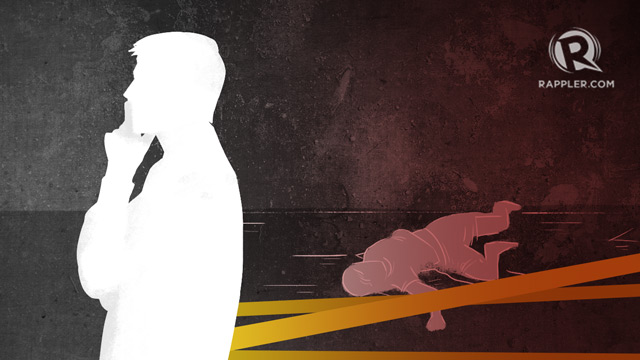
The great intellectuals of the 20th century were moralists – individuals who decried the wrongs of their societies and condemned the irresponsibility of their fellow citizens.
In Europe, writers like Albert Camus castigated French society for its compunction toward bloody, revolutionary shortcuts. In the Philippines, the polymath Salvador P. Lopez enjoined artists and thinkers to foreground social emancipation in creative work. Later in life, he condemned fellow writers for supporting Ferdinand Marcos.
The intellectual as moralist puts everything on the line, through bold, categorical arguments. He/she also curries disfavor from the targets of his/her polemics and their supporters. The moralist is, therefore, often lonely. Camus was famously isolated from his peers in the Parisian “left bank” because of his strident anti-communism. Lopez would become embittered in old age, when his opposition to Marcos led him to fade away from high government service and the media spotlight. Alone and alienated, the moralist, however, continues to speak.
The age of Dutertismo is an age of moral decay. Bodies litter the streets, and people kibitz as families weep – some feeling a perverse gratitude for the dawning of “disiplina,” the meting out of paternal punishment. Meanwhile, the President’s approval ratings increase as he wages war in what is already the country’s most blood-soaked region. And politicians vote to extend the brutality as if it’s just another day in the office.
There has never been a better time for moralist intellectuals than now. But where do we find them? And how might they influence the future of our country?
Intellectual histories of 20th-century often note that the moralist faded as the professional academic emerged. Ensconced in the universities, regulated by professional obligation, specialists took over the tasks of the generalists of yore. Gone were the days when writers lamented society’s general ethical stupor. Instead, scholars separated life into fields of inquiry, and commented only within their disciplines. The historian only wrote about history, the economist only on economics, the sociologist only on modern society.
On the one hand, the specialization allowed for humility: The academic does not speak about issues he/she had not researched. On the other hand, it also encouraged cowardice: The academic hides behind disciplinal walls to withhold judgment on pressing issues.
The academic may also use empiricism to avoid the question of morality. For why should the scholar as investigator make judgments when his/her task is merely to gather information? Contemporary anthropology, for example, tells its students to practice “cultural relativism.” Under this principle, the anthropologist must withhold ethical judgments of other cultures, lest he/she imposes his/her own belief system on a cultural “other.”

To condemn more than understand
For many scholars, responsibility means understanding and investigating various perspectives. Often, it involves forming strong attachments to multiple ethical worlds, and it hones one’s respect for others. Theirs is an empathetic responsibility. For moralists, on the other hand, responsibility means bearing witness to injustice and condemning those who abet it. Theirs is a prophetic responsibility.
There are certainly many gray areas in between these two forms of responsibility, and politics since Aristotle has been about balance. Hannah Arendt’s writings on political evil and totalitarianism, for example, illuminate because they are both empathetic and prophetic.
Yet there are some periods that call for greater moral outrage, that require us to condemn more than to understand. Today, many of our co-citizens, rich and poor, abet mass murder in direct and indirect ways. There are ways to “understand” these people, to explain their implicit bloodlust: the political system marginalized them, they have legitimate grievances against the previous administration, their families have been victimized by drug addicts.
With enough interpretation, any human behavior can be explained, and any ethical lapse can be granted its internal logic. You could, theoretically, reconstruct and understand the moral universe of a Nazi or a Stalinist. And this may even be a productive intellectual exercise. But you need to know when to draw the line.
There is a kind of intellectual populism that grants legitimacy to anything that is popular: The majority likes Duterte, so there must be a hidden wisdom we do not see. This populism of the pundit, alas, enables the populism of the politician. And these days, the populist politician is the same as the tyrant.
No amount of empathy, no patronizing deference to the wisdom of the masses, however, can obviate that a mass murderer, a potential international war criminal commands great adulation from our people. And no amount of good, no amount of reform in other areas washes away the stain of the bloodshed. A society that refuses to see this is in a moral rut.
In the Noli, Rizal wrote that we must sacrifice everything, vanity included, to diagnose the social cancer of our country. Such would entail forthright condemnation of our national defects – defects that are our own as children of the Philippines. Rizal’s was a prophetic, moralist voice. Its tonalities were those of anger, frustration, and outrage. And it refused to equivocate.
Today, people die. And some cheer. Others, like myself, become numb and cocoon themselves in private homes and private workspaces. Something is wrong, and our response must be based on outrage. May we be brave enough for anger. – Rappler.com
Lisandro E. Claudio (@leloyclaudio on Twitter) teaches history at De La Salle University.